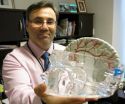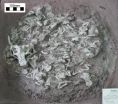(Press-News.org) Despite major retailers investing tens of millions of dollars a year into loyalty programs, they are a dying breed, with customers struggling to see the benefits of signing up, according to QUT research.
But benefits that stimulate gratitude in customers have the power to strengthen the seller-customer relationship and ensure loyalty, researchers Dr Syed Hasan, Professor Ian Lings, Associate Professor Larry Neale and Dr Gary Mortimer, from QUT's School of Advertising, Marketing and Public Relations, found.
Lead researcher Dr Hasan, a Postdoctoral Research Fellow, said the researchers found retailers that showed loyal shoppers they were "caring more for the customer than their own profit", would successfully secure customer gratitude.
The paper, titled "The role of customer gratitude in making relationship marketing investments successful", has been published in the September issue of the Journal of Retailing and Consumer Services.
"Shoppers are realising that a loyalty program provides the same benefits, discounts and communications to all members and you are not treated any differently than the tens of thousands, if not hundreds of thousands, of other members," Dr Hasan said.
"Our research suggests retailers should invest in ways to generate customer gratitude and appreciation, in order to make customers feel more valued.
"If a customer feels genuinely grateful, there is a stronger chance they will remain loyal to the retailer."
Dr Hasan said retailers could increase gratitude, and therefore secure loyalty, by providing "small favours" to customers or even "bending the rules" to meet their needs.
"Programs that provide gifts built into the product, like a free case with a new laptop, and those that end up financially benefitting the company in another way, like fuel dockets from Coles and Woolies, generate little gratitude because customers know the intention is not benevolent," he said.
"Instead, retailers need to offer a personal and flexible service to their best customers.
"For example, if a customer urgently needed to exchange the wrong-sized dress after the store has just closed, the store would generate more goodwill by delivering the right size to the customer's home or briefly re-opening the store, rather than offering an exchange the following day.
"Or, if a store does not have the right product in stock, referring a customer to a competitor shows it is more concerned with caring for the customer's needs, rather than its own."
Loyalty programs should also include some "random or discretionary elements", to ensure customers felt appreciated and valued, Dr Hasan said.
"That includes anything the customer is not expecting, that goes above the value of a normal transaction," he said.
"For example a free gift, members' only events or an extra special service offered."
The research involved surveying nearly 1100 students at three major universities in Pakistan about their experiences of their respective universities.
INFORMATION:
Gifts that generate gratitude keep customers loyal
2014-08-27
ELSE PRESS RELEASES FROM THIS DATE:
Piglet weaning age no bar to litter frequency
2014-08-27
University of Adelaide research has shown that piglets can be weaned later with no negative effects on sow birthing frequency.
The outcome of the study at the University's Roseworthy campus, published in the journal Animal Reproduction Science, is an important finding for pig producers. It allows improvements in piglet health and welfare without loss of production.
"Sows don't usually start their oestrous cycles again during lactation, only coming on heat after their piglets have been weaned," says Ms Alice Weaver, PhD candidate with the School of Animal and Veterinary ...
Measurement at Big Bang conditions confirms lithium problem
2014-08-27
The field of astrophysics has a stubborn problem and it's called lithium. The quantities of lithium predicted to have resulted from the Big Bang are not actually present in stars. But the calculations are correct – a fact which has now been confirmed for the first time in experiments conducted at the underground laboratory in the Gran Sasso mountain in Italy. As part of an international team, researchers from the Helmholtz-Zentrum Dresden-Rossendorf (HZDR) studied how much lithium forms under Big Bang conditions. The results were published in "Physical Review Letters".
Lithium, ...
Gamblers are greedy bird-brains, University of Warwick research finds
2014-08-27
Gamblers are greedy bird-brains, University of Warwick research finds
Gamblers show the same tendencies as pigeons when they make risky decisions, new research has shown.
Researchers, led by Dr Elliot Ludvig of the University of Warwick's Department of Psychology, conducted tests that found that both human gamblers and pigeons were 35% more likely to gamble for high-value than low-value rewards.
Published in Biology Letters, the researchers argue that the test results show the important role that memories of previous biggest wins and losses play when we make risky ...
The thunder god vine, assisted by nanotechnology, could shake up future cancer treatment
2014-08-27
Hepatocellular carcinoma (HCC) is the second leading cause of cancer-associated death worldwide. These regrettably poor prognoses are due to the difficulty in treating this cancer using conventional chemotherapeutic drugs such as doxorubicin, epirubicin, cisplatin, 5-fluorouracil, etoposide or combinations therein. This may be attributed to that the conventional medicines are not able to reach in a sufficient concentration in the liver tumor cells at levels that are not harmful to the rest of the body. Considering the large percentage of patients that are deemed ineligible ...
DTU researchers film protein quake for the first time
2014-08-27
One of nature's mysteries is how plants survive impact by the huge amounts of energy contained in the sun's rays, while using this energy for photosynthesis. The hypothesis is that the light-absorbing proteins in the plant's blades quickly dissipate the energy throughout the entire protein molecule through so-called protein quakes. Researchers at DTU Physics have now managed to successfully 'film' this process.
Both plants, algae and bacteria contain light-absorbing proteins which play a role in photosynthesis and thus how the organisms produce energy. However, it has ...
A prescription for better stroke care
2014-08-27
TORONTO, Aug. 27, 2014 – Stroke patients are 70 per cent more likely to continue taking their stroke prevention medications one year later if they have a prescription in hand when discharged – according to researchers at St. Michael's Hospital and the Institute for Clinical Evaluative Sciences (ICES).
Using data from 11 stroke centres, researchers determined how many Ontarians were taking their medications one week, one year and two years after having a stroke. The results reveal the importance of simple interventions, such as giving a prescription to a patient before ...
The roots of human altruism
2014-08-27
VIDEO:
Sakis play the group service game.
Click here for more information.
Scientists have long been searching for the factor that determines why humans often behave so selflessly. It was known that humans share this tendency with species of small Latin American primates of the family Callitrichidae (tamarins and marmosets), leading some to suggest that cooperative care for the young, which is ubiquitous in this family, was responsible for spontaneous helping behavior. But it ...
Fighting prostate cancer with a tomato-rich diet
2014-08-27
Men who eat over 10 portions a week of tomatoes have an 18 per cent lower risk of developing prostate cancer, new research suggests.
With 35,000 new cases every year in the UK, and around 10,000 deaths, prostate cancer is the second most common cancer in men worldwide.
Rates are higher in developed countries, which some experts believe is linked to a Westernised diet and lifestyle.
To assess if following dietary and lifestyle recommendations reduces risk of prostate cancer, researchers at the Universities of Bristol, Cambridge and Oxford looked at the diets and lifestyle ...
Leading scientists call for a stop to non-essential use of fluorochemicals
2014-08-27
Fluorochemicals are synthetically produced chemicals, which repel water and oil and are persistent towards aggressive physical and chemical conditions in industrial processing. These characteristics have made the fluorochemicals useful in numerous processes and products, such as coatings for food paper and board.
The problem with fluorochemicals is that they are difficult to break down and accumulate in both humans and the environment. Some fluorochemicals have known correlations with harmful health effects, such as cancer, increased cholesterol and a weaker immune system ...
Penn paleontologists describe a possible dinosaur nest and young 'babysitter'
2014-08-27
Dinosaurs are often depicted as giant, frightening beasts. But every creature is a baby once.
A new examination of a rock slab containing fossils of 24 very young dinosaurs and one older individual is suggestive of a group of hatchlings overseen by a caretaker, according to a new study by University of Pennsylvania researchers.
Penn's Brandon P. Hedrick and Peter Dodson led the work, collaborating with researchers from China's Dalian Museum of Natural History, where the specimen is held. Hedrick is a doctoral student in the School of Arts & Sciences' Department of Earth ...






